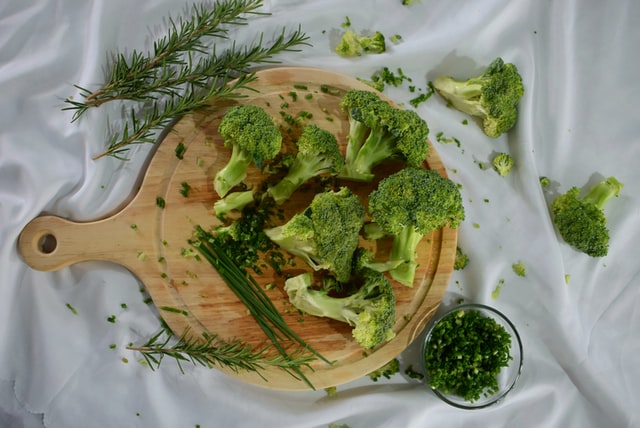 |
| Foods with great health benefits |
What Are Superfoods?
A superfood is a food (such as salmon, broccoli, or blueberries) that is high in antioxidants, fiber, or fatty acids and is considered advantageous to a person's health. However, there is no formal definition of a superfood in scientific terms, other than that it is a food that has high quantities of desirable nutrients that are connected to improving human health and wellness or preventing disease and illness. The idea of designating a food as a superfood appears to be more in line with promoting a balanced diet rich in fruits, vegetables, lean meats, and whole grains.
The Original Superfood
As word of the fruit's popularity spread, so did its moniker. For a long time, doctors recommended bananas as a treatment for a variety of diseases, including celiac disease and diabetes. Prior to the discovery of gluten, the American Medical Association thought that including bananas in a child's diet might alleviate or even cure celiac disease.
Superfoods For The Twenty-First Century
A phrase like "superfood" is practically associated with putative health advantages more than a century after it was coined. The Internet and social media can quickly spread information about the benefits of a so-called superfood. It simply takes some scientific research on a certain food, some well-worded news pieces, and a clever food marketing campaign for it to become a newly discovered "superfood" in the food industry.
While some superfoods have been scientifically established to offer health advantages and are recommended by dietitians, detractors contend that fleeting fads and/or celebrities misrepresent other foods.
The Use Of Food As Medicine
The food industry has built a very lucrative business by marketing superfoods. Consumers are looking for "functional foods that deliver benefits that can either minimize their risk of disease and/or enhance excellent health.
According to a recent poll, health features have a big influence on the foods people buy, with customers prepared to pay a premium for health benefits, although not all traits are equally essential around the world.
Furthermore, nearly 75% of global respondents believe people are what they eat, and nearly 80% are actively using foods to prevent health difficulties and medical conditions like obesity, diabetes, high cholesterol, and hypertension.
These findings appear to be in line with the growing popularity of high-performing superfoods like fruits, vegetables, and whole grains, which are thought to be healthy.
Five Superfoods To Include In Any Diet
Below is a list of 5 superfoods that can be easily assimilated into any diet to reap the benefits.
 |
| Health benefits of mushrooms |
1. Mushrooms
For thousands of years, mushrooms have been a staple in traditional Chinese medicine. And now we have modern science to explain the effects of this remarkable fungus, which can stimulate, reroute, or modify our immunological function depending on the species.
Maitake mushrooms can enhance Th1 cytokines, which assist trigger the cellular immune response when battling bacterial infections, in addition to making tasty tacos.
Shiitake mushrooms are also highly regarded as a superfood. Studies have found a pattern of immune-boosting advantages, such as a rise in NK and Cytotoxic T cells, which are both beneficial in fighting viruses and cancer cells.
Finally, there's the reishi mushroom, which has been proven in multiple trials to boost Th1 cytokine production and improve the efficacy of chemotherapy medicines. Reishi extracts also boost the immune system's response to some herpes virus strains. Because the hard outer shell of reishi mushrooms makes them inedible, capsules are the most practical form.
2. Ginger
Ginger contains anti-inflammatory and antioxidant effects in spades. Gingerols are chemicals found in the spicy, aromatic root that show promise in preventing cardiovascular disease by lowering oxidative stress in blood vessels and inflammation in the heart.
Ginger extract has been shown in studies to help prevent alcohol-induced liver illness and to reduce the kidney damage caused by chemotherapy medications.
Doctors frequently offer ginger to patients who suffer from nausea, bloating, and other GI issues as a result of microbiota imbalances. Fresh ginger can be used in savory recipes, smoothies, and ginger tea, or people can buy a ginger shot bottle (available at many juice bars and cafés due to its superfood status) to drink straight or mixed with water.
 |
| Garlic health benefits |
3. Garlic
Garlic not only enhances the flavor of everything it touches but also contains a number of components that help to regulate the immune system.
Garlic is immune-stimulating, according to studies, enhancing the activity of NK cells, a type of immune cell with granules containing enzymes that can kill tumor cells or virus-infected cells. Garlic is anti-inflammatory and can protect the heart by decreasing cholesterol and blood pressure.
- It's also fantastic for strengthening intestines for a variety of reasons:
- It can boost amounts of helpful bacteria like Lactobacillus, a probiotic that lives naturally in the GI tract.
- It has antibacterial, antiviral, and antifungal properties.
- It can correct bacterial imbalances in the gut, which can reduce inflammation.
Garlic can be added to practically every recipe, and if someone doesn't like the taste, it's also available as a supplement.
 |
| Broccoli |
4. Broccoli Sprouts
Broccoli sprouts, a potent source of one of the most immune-supportive biochemicals, sulforaphane, have recently received a lot of attention.
Sulforaphane has been proven to enhance the amounts of various antioxidant molecules in cells on its own by triggering a substance called NRF-2 in our cells. This antioxidant is referred to as the "master regulator" since it aids in the production of other antioxidants. NRF-2 may help to reduce inflammation in a variety of disorders, including cancer, chronic obstructive pulmonary disease, and liver disease.
Glucoraphanin, which is found in abundance in cruciferous vegetables like cauliflower and broccoli, is converted to sulforaphane during digestion. Young broccoli sprouts, on the other hand, contain 10 to 100 times more sulforaphane than mature broccoli! Because sulforaphane is easily broken down by heat, the best method to eat broccoli sprouts is raw, such as in salads.
5. Turmeric
Turmeric root is among the best superfoods for its immune-boosting properties. Curcumin, a remarkable ingredient found in the vivid yellow-orange root, has a slew of advantages:
- It has the ability to counteract elevated cortisol levels.
- It can help to reduce some of the immunological alterations that cause autoimmune illnesses, as well as lower chronic inflammation all over the body.
- It promotes the growth of good bacteria in the stomach while inhibiting the growth of disease-causing bacteria.
- It helps rheumatoid arthritis patients reduce joint swelling.
Turmeric is a wonderful spice to use in cooking, albeit it does give the skin, tongue, and teeth a vivid yellow tint. Because it's poorly absorbed in the gastrointestinal tract, one has to eat a lot of it to get immune-modulating effects.
Author: Paroma Bhattacharya is a passionate content creator and has been a professional content writer for over half a decade. She is currently working for Reports and Data and possesses extensive knowledge in subjects related to food and beverages, healthcare, technology, banking, and a wide range of other industry verticals. Her articles focus primarily on balancing relevant data with engaging storytelling. She believes in providing objective facts to help people make important business decisions.

